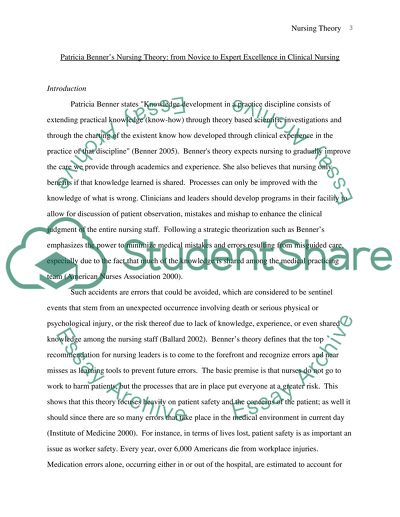Cite this document
(“Patricia Benners Nursing Theory Essay Example | Topics and Well Written Essays - 2250 words”, n.d.)
Retrieved from https://studentshare.org/miscellaneous/1524879-patricia-benners-nursing-theory
Retrieved from https://studentshare.org/miscellaneous/1524879-patricia-benners-nursing-theory
(Patricia Benners Nursing Theory Essay Example | Topics and Well Written Essays - 2250 Words)
https://studentshare.org/miscellaneous/1524879-patricia-benners-nursing-theory.
https://studentshare.org/miscellaneous/1524879-patricia-benners-nursing-theory.
“Patricia Benners Nursing Theory Essay Example | Topics and Well Written Essays - 2250 Words”, n.d. https://studentshare.org/miscellaneous/1524879-patricia-benners-nursing-theory.


